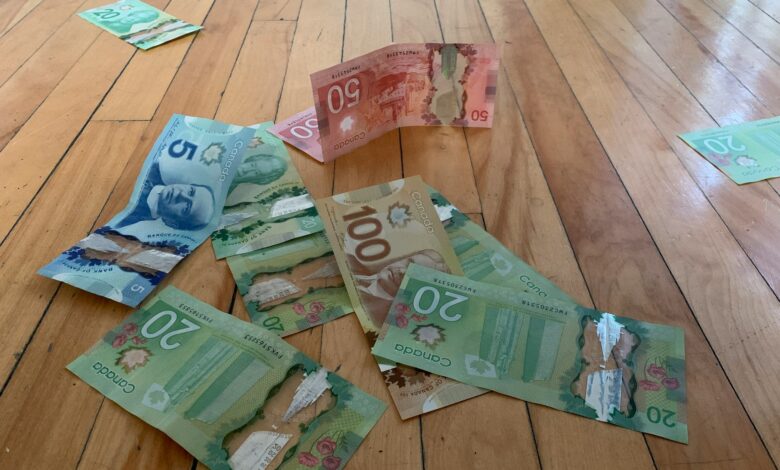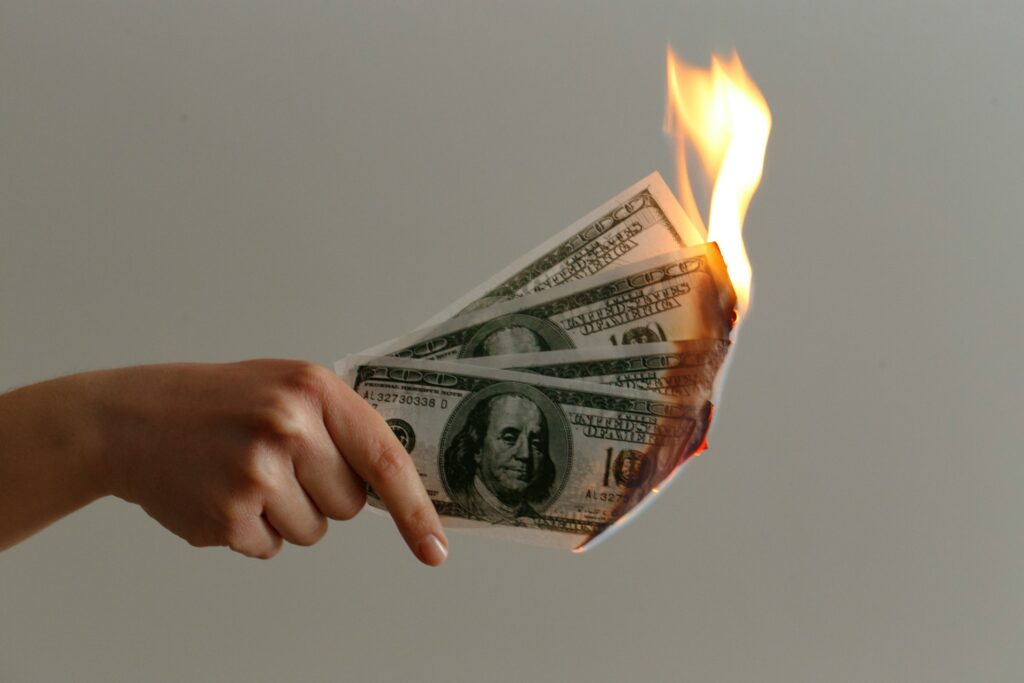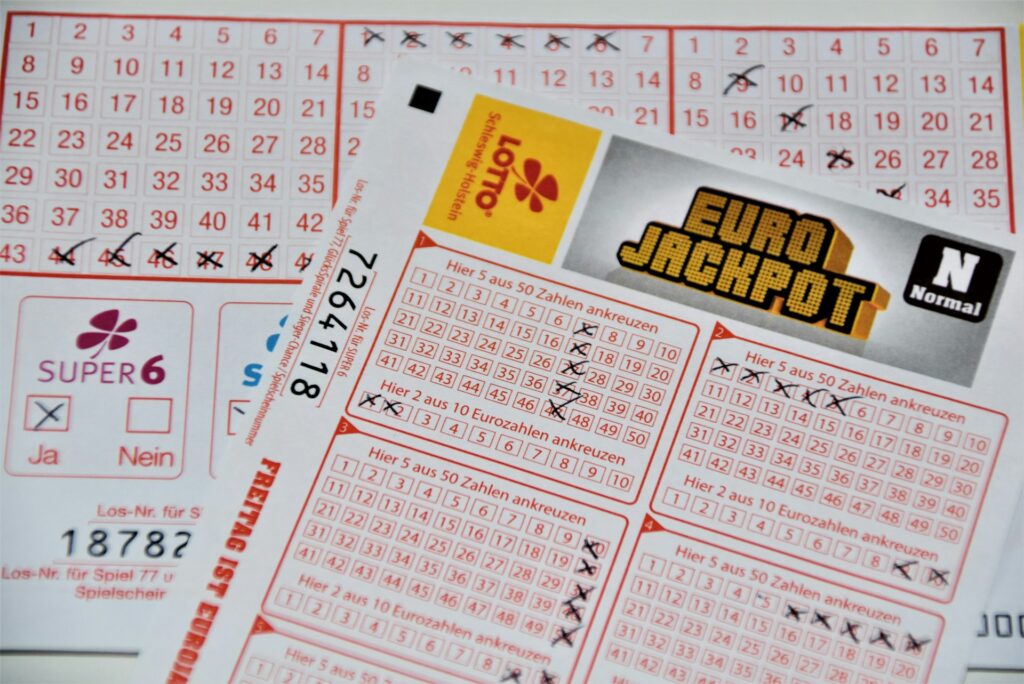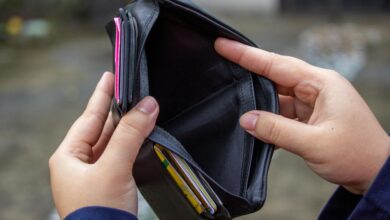15 Things You Should Never Waste Your Money On

Let’s be real for a second. You work hard for your money, right? You wake up early, deal with traffic, put up with annoying coworkers, and grind through meetings that could’ve been emails.
So why on earth would you throw that hard-earned cash down the drain on stuff that doesn’t even matter?
Here’s the uncomfortable truth: most of us are bleeding money without even realizing it. We think we’re being smart with our finances, but then we check our bank account and wonder where everything went. Spoiler alert: it went to things you absolutely didn’t need.
I’ve been there. I’ve bought lottery tickets thinking “this could be the one,” paid late fees because I forgot to set up autopay, and yeah, I’ve definitely ordered takeout when my fridge was full of groceries. But once I figured out where my money was actually going, everything changed.
Today, I’m breaking down the biggest money traps that are probably draining your wallet right now. And trust me, once you cut these out, you’ll wonder how you ever lived without that extra cash in your pocket.
What Are The Biggest Money Wasters?
Before we get into the full list, let’s talk about the absolute worst offenders. Based on countless studies and real stories from people just like you and me, lottery tickets and fast food top the charts as the biggest money wasters out there.
The scary part? These aren’t one-time purchases. They become habits. You grab a lottery ticket every time you fill up gas. You hit the drive-thru because cooking feels like too much work. Before you know it, you’ve spent hundreds (or thousands) of dollars on stuff that gave you nothing in return.
Think about it this way: if someone asked you to hand over $50 every week for absolutely nothing, you’d laugh in their face. But that’s exactly what’s happening when these money wasters become part of your routine.
How Do You Know If You’re Wasting Money?
Ever opened your fridge and found food you don’t even remember buying? Or scrolled through your subscriptions and realized you’re paying for three streaming services you haven’t touched in months? Yeah, that’s wasting money.
The biggest red flag is impulse buying. You know what I’m talking about. You walk into Target for toothpaste and walk out with a cart full of stuff you “might need someday.” Your credit card gets swiped, and you feel great for about five minutes. Then reality hits.
Another telltale sign is when your paycheck disappears faster than you can track it. If you’re constantly wondering “where did all my money go?” without having anything substantial to show for it, you’re probably throwing cash at things that don’t deserve it.
FYI, checking your bank statements regularly is like looking in a mirror. It shows you the truth, even when it’s uncomfortable. But that discomfort? That’s the first step to fixing the problem.
How To Stop Wasting Money

You can’t fix a leaky pipe if you don’t know where the leak is, right? Same goes for your finances. The first step to stop wasting money is figuring out exactly where it’s going.
Grab your bank statements, credit card bills, and any other financial records you have. Go through them line by line. I know it sounds boring, but trust me, it’s eye-opening. You’ll probably find charges you forgot about or didn’t even authorize.
1. Cut Out The Money Wasters
Once you’ve identified the culprits, it’s time to be ruthless. And yeah, this is the hard part. If you’re someone who eats out five times a week, cutting back to once or twice is going to feel weird at first. But your bank account will thank you.
The key is making a decision and sticking to it. Not “I’ll try to eat out less.” That’s too vague. Instead, say “I’m only eating out on Fridays, and I’m budgeting $30 for it.” See the difference? One is wishful thinking, the other is a plan.
2. Build A Budget That Actually Works
Here’s where budgeting comes in. I know, I know. Budgeting sounds about as fun as watching paint dry. But hear me out. A budget isn’t about restricting yourself. It’s about telling your money where to go instead of wondering where it went.
Start with your essentials: rent, utilities, groceries, transportation. These are non-negotiables. Then add in your savings goals (yes, savings come before fun money). Whatever’s left can go toward things you enjoy, but within reason.
The beauty of a budget is that it keeps you honest. When you see that you’ve already spent your “eating out” budget for the month, you’re way less likely to order that pizza. And if you do? Well, at least you know you’re making a conscious choice to blow your budget, not just mindlessly swiping your card.
15 Things You Should Never Waste Your Money On
Alright, let’s get into the good stuff. Here are the 15 biggest money traps you need to avoid if you want to keep more cash in your pocket and actually reach your financial goals.
1. Lottery Tickets

Let me guess. You’ve thought about what you’d do if you won the lottery, right? Pay off your debt, buy a house, travel the world. Sounds amazing. There’s just one tiny problem: you’re never going to win.
I’m not trying to be mean here. It’s just math. The odds of winning a major lottery jackpot are somewhere around 1 in 300 million. You’re more likely to get struck by lightning. Twice. In the same year.
But here’s what really gets me. People spend $20, $50, sometimes even $100 a week on lottery tickets. That’s money that could go into a high-yield savings account or an investment account. Over a year, that’s thousands of dollars that could actually be working for you instead of funding someone else’s jackpot.
Look, I get it. The dream is tempting. But playing the lottery isn’t a financial strategy. It’s basically throwing your money into a black hole and hoping for magic. If you want to get rich, there are way better (and more realistic) ways to do it.
2. Late Fees
Late fees are literally paying extra for nothing. You owe $50 for your credit card bill. You forget to pay it on time. Now you owe $75. Congrats, you just paid $25 for the privilege of being forgetful.
The worst part? Late fees are 100% avoidable. Every single one of them. And yet, Americans collectively pay billions in late fees every year. Billions! That’s money that could be in your pocket instead of lining the banks’ coffers.
Here’s my advice: set up automatic payments for everything. Your rent, your credit card, your utilities. Everything. I did this years ago, and I haven’t paid a late fee since. Even if you’re terrible at remembering due dates (no judgment, we all have our things), automation has your back.
Some people worry about automatic payments because they’re afraid they won’t have enough money in their account. Fair enough. But that’s a budgeting problem, not an automation problem. Fix your budget, then automate your bills. Problem solved.
3. Bank Fees
Bank fees are one of those things that people just accept as part of life. Monthly maintenance fees, overdraft fees, ATM fees. It all adds up, and before you know it, you’re paying your bank hundreds of dollars a year just to hold your money.
Here’s the thing: you don’t have to put up with this anymore. There are tons of banks out there that don’t charge fees. Like, at all. Ally Bank and Chime are two popular options that have zero monthly fees, zero overdraft fees, and even reimburse you for ATM fees.
I switched to a no-fee bank a few years ago, and honestly, it was one of the easiest money-saving moves I’ve ever made. I didn’t have to change my spending habits or sacrifice anything. I just stopped paying my bank for the privilege of keeping my money there.
If you’re still with a traditional bank that charges fees, do yourself a favor and make the switch. It takes maybe an hour to set up a new account, and you’ll save money every single month. That’s what I call a no-brainer.
4. Expensive Clothes
Let’s talk about designer clothes for a second. That $200 t-shirt might have a fancy logo on it, but is it really that much better than the $15 one from Target? Spoiler: probably not.
I used to think expensive clothes were automatically higher quality. Then I started actually paying attention to the fabric, the stitching, the construction. Guess what? Some of the priciest items I owned fell apart faster than the cheap stuff.
The truth is, you’re often paying for the brand name, not the quality. And yeah, I get it. There’s something appealing about wearing designer labels. But is that feeling worth going broke over?
Here’s a better approach: shop in person whenever possible. When you can actually touch the fabric and examine the quality, you’re way less likely to get ripped off. Plus, you can negotiate at some stores, especially if you’re buying multiple items.
And if you want to look expensive without actually spending a fortune, focus on fit and basics. A well-fitting $30 shirt looks way better than an ill-fitting $200 one. Trust me on this.
5. Extended Warranties
Every time you buy electronics, the salesperson tries to sell you an extended warranty. They make it sound like your new laptop is going to explode the second the manufacturer’s warranty runs out. It’s fear-based selling, and it works way too well.
Here’s the reality: most extended warranties cost almost as much as replacing the item. And most of the time, you’ll never use them. Products either break during the manufacturer’s warranty period, or they last for years without issues.
Think about it. Have you ever actually used an extended warranty? Most people haven’t. But they’ve paid for dozens of them over the years. That’s hundreds, maybe thousands, of dollars spent on peace of mind that never actually provided any value.
My advice? Skip the extended warranty and put that money in a savings account instead. If your item breaks down the road, you’ll have the cash to repair or replace it. And if it doesn’t break? Congrats, you just saved yourself some money.
6. Luxury Apartment

I know someone who spent nearly 60% of their income on rent because they wanted to live in a trendy neighborhood. They had a gorgeous apartment with all the amenities. They were also constantly stressed about money and couldn’t save a dime.
Here’s a rule that financial experts have been preaching forever: don’t spend more than one-third of your income on housing. Ideally, even less. The more you spend on rent, the less you have for everything else. Savings, investments, experiences, emergencies. All of it takes a backseat when you’re house-poor.
I get the appeal of a nice place. But you know what’s nicer? Not lying awake at night worrying about how you’re going to make rent. Having money left over to actually enjoy your life. Building wealth instead of just surviving paycheck to paycheck.
If moving to a cheaper place means you can finally start saving, pay off debt, or invest for your future, it’s worth it. Your apartment is just a place to sleep. It doesn’t define your worth, and it’s definitely not worth sacrificing your financial security.
7. Expensive Phones
Do you really need the latest iPhone that costs over $1,000? Or would a $300 Android phone do pretty much everything you need?
I’m not saying expensive phones are bad. They’re nice. They have great cameras, smooth interfaces, and all the bells and whistles. But here’s the question: are those features worth the extra $700?
For most people, the answer is no. A mid-range smartphone can handle calls, texts, social media, email, and pretty much everything else you do on a daily basis. The difference between a $300 phone and a $1,000 phone is mostly just bragging rights.
Plus, expensive phones often come with expensive data plans. Carriers love to upsell you on unlimited everything when you’re using a flagship device. Meanwhile, someone with a budget phone can get away with a much cheaper plan.
And while we’re on the topic, if you still have a landline at home that you never use, cut it. That’s another $30-$50 a month you could be saving or putting toward something that actually matters.
8. Fast Food
Fast food is convenient. I’ll give it that. But it’s also expensive, unhealthy, and honestly, not even that good most of the time.
Let’s do some quick math. Say you spend $10 on fast food every day. That’s $70 a week, $280 a month, and over $3,000 a year. For mediocre burgers and fries. Does that sound like a good use of your money?
Now compare that to cooking at home. You can make a week’s worth of meals for the same price as a few fast food runs. And the food is actually fresh, healthier, and way more satisfying.
I used to be a serial fast food buyer. I told myself I was too busy to cook. Then I realized I was spending hours every week sitting in drive-thru lines. Turns out, I had plenty of time. I was just using it poorly.
Once I started meal prepping on Sundays, everything changed. I saved money, ate better, and actually had more free time during the week. If you’re still relying on fast food, I’m telling you: it’s time to break that habit.
9. Piecemeal Insurance
Insurance is important. We all know that. But not all insurance is created equal, and some policies are straight-up scams designed to separate you from your money.
Piecemeal insurance policies, like accidental death insurance or disease-specific insurance, are usually a waste. They sound good in theory, but they’re so specific that they rarely pay out when you actually need them.
I’ve heard stories of people who had accidental death insurance but died of natural causes. Their families got nothing. Meanwhile, they’d been paying premiums for years.
Here’s a better approach: get comprehensive coverage. A good term life insurance policy and a solid disability insurance plan will cover you in most situations. You don’t need ten different policies for ten different scenarios. That’s just expensive and confusing.
Talk to a reputable insurance agent (not someone trying to sell you a million add-ons) and figure out what coverage you actually need. Then get that, and only that. Your wallet will thank you.
10. Gifts Nobody Needs
Gift-giving is supposed to be thoughtful and meaningful. But somewhere along the way, it turned into an obligation. We buy gifts because we feel like we have to, not because we actually want to.
How many times have you given someone a gift that ended up in the back of their closet? Or received a gift you had no use for? It happens all the time, and it’s a massive waste of money.
Here’s a radical idea: talk to your family and friends about gifts. Maybe agree to skip them altogether, or set a low budget, or do something experiential instead. A nice dinner together or a fun outing is way more memorable than another candle or picture frame.
And if you absolutely have to give gifts, make them meaningful. Think about what the person actually needs or wants. Put some thought into it. A $20 gift that someone will actually use is infinitely better than a $100 gift that collects dust.
Or, here’s another option: take the money you’d spend on gifts and donate it to a cause that matters. It’s more impactful, and honestly, it feels way better than buying stuff nobody needs.
11. Brand New Car

New cars are one of the worst financial decisions you can make. I said it. And I’ll say it again: buying a brand new car is a terrible use of your money.
Here’s why. The second you drive a new car off the lot, it loses about 20% of its value. Just like that. Poof. Thousands of dollars gone. And it keeps depreciating from there. Within five years, that car is worth maybe half of what you paid for it.
Meanwhile, a gently used car that’s two or three years old has already taken that initial depreciation hit. You can get basically the same car for way less money, and it’ll run just as well.
I know new cars are shiny and exciting. They smell good. They have all the latest tech. But is that worth paying an extra $10,000 or $20,000? For most people, especially those trying to build wealth, the answer is no.
Buy used. Take care of it. Drive it for a decade. That’s how you win with cars. Anything else is just throwing money away.
12. Co-Signing A Loan
Co-signing a loan for a friend or family member might seem like a kind gesture. And maybe it is. But it’s also a massive financial risk that could come back to bite you.
When you co-sign a loan, you’re legally responsible for it. If the person you co-signed for can’t make the payments, guess who’s on the hook? You. And if you can’t pay it either, your credit score takes a nosedive.
I’ve seen friendships ruined and families torn apart over co-signed loans. It’s just not worth it. If someone needs money and asks you to co-sign, there’s probably a reason the bank won’t give them the loan on their own. Think about that.
If you really want to help, consider lending them money directly. Yeah, you might not get it back, but at least it won’t destroy your credit. And you can decide upfront how much you’re willing to lose without it becoming a huge issue.
Bottom line: don’t co-sign loans. Protect your financial future, even if it means saying no to someone you care about.
13. Weight Loss Traps
The weight loss industry is a multi-billion dollar machine built on promises and false hope. They sell you pills, shakes, and supplements that claim to melt fat away while you sit on the couch eating chips. Spoiler: they don’t work.
I’m not saying everyone who uses these products is wasting their money. But most are. These pills and supplements are expensive, and they rarely deliver the results they promise. Plus, some of them have serious side effects that can mess with your health.
Want to know the real secret to losing weight? Eat better and move more. I know, I know. That’s not sexy or exciting. But it’s free, and it actually works.
If you’ve been throwing money at weight loss products for months or years without seeing results, it’s time to stop. Save that money and invest it in something that’ll actually improve your life. Like a gym membership you’ll actually use, or fresh groceries for meal prep.
Your body (and your bank account) will thank you.
14. Food You’d Eventually Waste
Did you know the average American family throws away about $1,500 worth of food every year? That’s not a typo. Fifteen hundred dollars. Just tossed in the trash.
Think about that for a second. Would you ever take $1,500 in cash and throw it in the garbage? Of course not. But that’s exactly what’s happening when you buy food you don’t eat.
The fix is simple: plan your meals. Before you go grocery shopping, sit down and figure out what you’re going to eat for the week. Make a list. Stick to the list. Don’t buy random stuff just because it looks good or it’s on sale.
Also, shop at discount grocery stores like Trader Joe’s or Aldi. You’ll get the same quality food for way less money. And when you’re spending less per item, wasting food hurts a little less (though you still shouldn’t do it).
Meal planning might sound like a chore, but it’s one of the easiest ways to save money. Plus, you’ll eat better and waste less. It’s a win all around.
15. Money Leaks
Money leaks are those sneaky recurring expenses that you forget about. Subscriptions you signed up for months ago and never use. Gym memberships you pay for but never visit. Streaming services you don’t even remember having.
These little charges add up fast. $10 here, $15 there. Before you know it, you’re paying $100+ a month for stuff you don’t use. That’s $1,200 a year. For nothing.
Here’s what you need to do: go through your bank statements and credit card bills. Highlight every recurring charge. Then ask yourself: do I actually use this? If the answer is no, cancel it. Right now. Don’t wait.
I did this a while back and found subscriptions I completely forgot about. A magazine I never read. A software tool I used once. A gym membership I hadn’t touched in six months. Canceling all of them saved me over $80 a month.
It’s like finding free money in your couch cushions, except it’s way more than a few quarters. Plug those money leaks, and watch your savings grow.
Final Thoughts
Look, I’m not here to tell you to live like a monk and never enjoy anything. Life’s too short for that. But there’s a huge difference between spending money on things that bring you joy and value, and throwing it away on stuff that doesn’t matter.
The 15 things we talked about today? They’re all money traps. They promise convenience, happiness, or security, but they rarely deliver. And meanwhile, they’re draining your bank account and keeping you from reaching your financial goals.
Start by picking just one or two things from this list and cutting them out. See how much you save in a month. I bet you’ll be surprised. Then tackle another one. And another.
Before you know it, you’ll have extra money to put toward things that actually matter: paying off debt, building an emergency fund, investing for your future, or just enjoying life without the constant stress of being broke.
Your money is a tool. Use it wisely. Don’t let it slip through your fingers on lottery tickets, bank fees, and fast food. You worked hard for it. Make it work hard for you. 🙂








